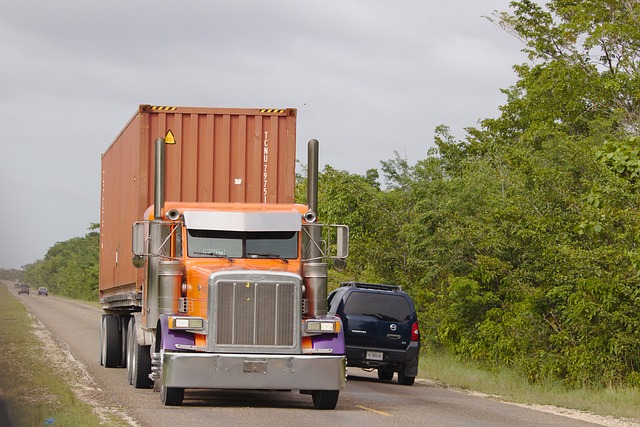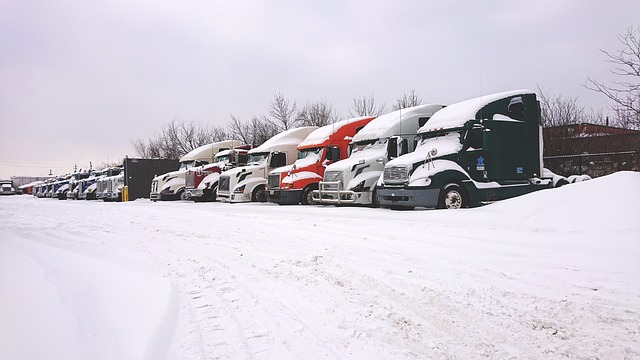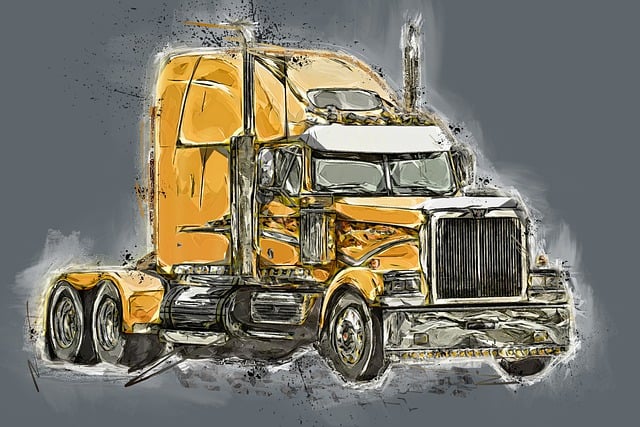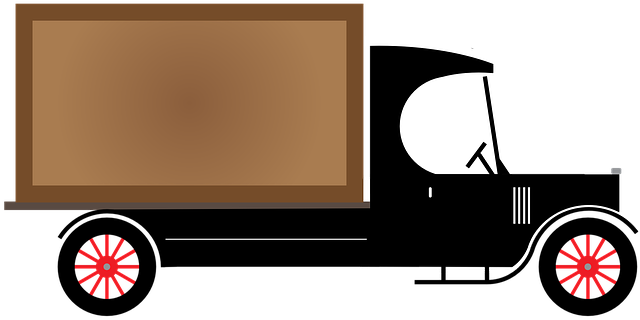For new trucking businesses, physical damage insurance is a crucial element for risk management, protecting against financial losses from vehicle and cargo damage. This core component of comprehensive insurance packages covers accidents, natural disasters, fires, and vandalism, ensuring operational continuity by covering repairs or replacements. Beyond physical damage, comprehensive insurance includes liability, cargo, workers' compensation, and general liability policies to manage a wide range of potential financial risks associated with goods transportation. Understanding policy exclusions, such as wear and tear and lack-of-maintenance issues, is essential for tailored protection.
Starting a trucking business comes with unique risks. Understanding the right coverage is crucial for any new enterprise to thrive. This guide navigates the essential types of insurance every trucking company needs, focusing on the importance of physical damage insurance and its role in protecting your assets. We’ll delve into the details, exploring common exclusions, and highlighting additional coverages like liability and cargo insurance that go beyond physical protection. By the end, you’ll be equipped to make informed decisions for securing your new trucking venture.
Understanding Essential Coverage for Trucking Businesses

For any new trucking business, understanding the types of coverage needed is crucial for navigating the industry’s inherent risks. Physical damage insurance stands out as an essential component. This type of insurance protects against financial losses incurred due to accidents or other events causing damage to vehicles and cargo. It’s not just about covering repairs; it ensures businesses can replace lost or damaged goods, minimising downtime and associated costs.
Beyond physical damage, trucking businesses also require liability coverage to safeguard against claims related to accidents they might cause. This includes property damage and injuries to third parties. Comprehensive insurance packages often include these core components, offering a safety net that allows trucking operators to focus on their primary mission: efficient and safe transportation of goods.
– Why physical damage insurance is crucial

Every new trucking business, regardless of its size or scope, needs to prioritize adequate insurance coverage to protect its investments and assets. Among the various types of insurance, physical damage insurance stands out as a crucial component. This type of coverage safeguards your vehicles and equipment from perils like accidents, natural disasters, fire, and vandalism. Without it, even a minor incident could result in substantial financial losses, disrupting operations and even putting the future sustainability of the business at risk.
Physical damage insurance is not just about mitigating risks; it’s also about ensuring operational continuity. By insuring against physical damage, trucking businesses can avoid the costly and time-consuming process of replacing or repairing damaged assets. This peace of mind allows them to focus on what they do best: transporting goods efficiently and safely across the road.
– Types of coverage to consider beyond physical damage

Beyond Physical Damage Insurance: Protecting Your Trucking Business’s Interests
While physical damage insurance is a staple for any trucking business, there are several other types of coverage that are equally crucial to safeguard your operations. These include liability insurance, which protects against claims arising from accidents or incidents involving your vehicles and cargo. Additionally, cargo insurance is vital to cover the value of the goods you transport, ensuring compensation in case of loss, damage, or delay.
Another essential consideration is workers’ compensation insurance, designed to protect both your drivers and your business from medical expenses and lost wages due to work-related injuries or illnesses. Furthermore, general liability insurance provides a safety net against claims of bodily injury or property damage that may occur on your premises or during operations, protecting your trucking business from potential legal liabilities beyond the scope of physical damage.
Physical Damage Insurance: What It Covers and Exclusions

Physical Damage Insurance, a cornerstone for any trucking business, safeguards against financial losses stemming from unforeseen events that can cause harm to vehicles and equipment. This coverage protects against a wide range of perils, including accidents, natural disasters, and vandalism, ensuring that repairs or replacements are covered, up to the policy limits. It’s crucial for truck owners as it provides financial security, shielding them from the significant costs associated with vehicle damage.
However, no insurance policy is without its exclusions. With Physical Damage Insurance, certain events are not covered. These may include wear and tear, mechanical failures due to lack of maintenance, and specific types of weather-related damages, like floods or earthquakes (depending on the policy terms). Understanding these exclusions is vital for trucking businesses to ensure they’re adequately protected against the risks they face in their operations.
When starting a trucking business, ensuring the right coverage is paramount. Physical damage insurance is a cornerstone, protecting against unforeseen incidents that could impact your fleet. However, beyond this essential coverage, considerations like liability, cargo protection, and comprehensive insurance are vital to navigate the unpredictable nature of the road. By understanding these various types of coverage, new businesses can create a robust risk management strategy, fostering a safe and successful trucking operation.
